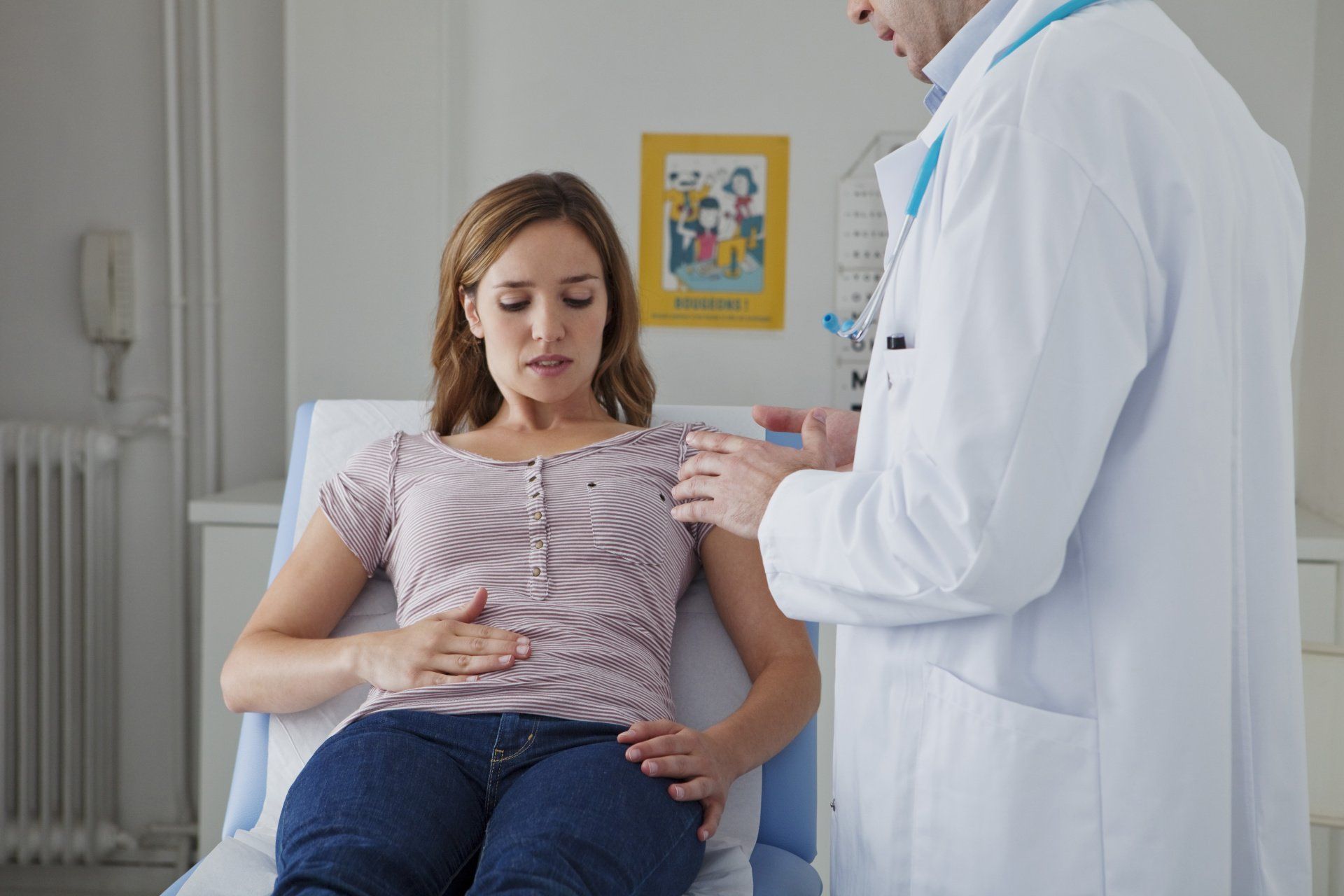ULCERATIVE COLITIS IN FLORIDA
Ulcerative colitis affects the innermost lining of colon and rectum. This is an inflammatory bowel disease that causes sores (ulcers) and inflammation throughout the digestive tract.
INFORMATION ABOUT ULCERATIVE COLITIS
-
Types of Ulcerative Colitis
There are four types of ulcerative colitis. These different conditions are identified by their location in the GI tract, and often have overlapping symptoms. Ulcerative proctitis occurs when inflammation is confined to area nearest the anus, or rectum. Rectal bleeding may be the only sign of this type of ulcerative colitis. Left-sided colitis is inflammation that extends from the rectum to sigmoid and other descending portions of the colon. Bloody diarrhea, cramping, and pain on the left side of your abdomen can all be signs of this digestive condition. Proctosigmoiditis is the inflammation of the rectum as well as the lower end of the colon, or sigmoid colon. This type has similar symptoms as left-sided colitis as well as tenesmus, which is the inability to have a bowel movement despite feeling like you need to have one. Pancolitis impacts the entire colon and creates experiences of bloody diarrhea as well as abdominal pain, cramps, significant and sudden weight loss, and fatigue.
-
Symptoms of Ulcerative Colitis
Ulcerative colitis symptoms can vary in severity, location, and timing. Common signs of this digestive condition include:
- Rectal pain
- Weight loss
- Fever
- Diarrhea (often with pus or blood)
- Abdominal pain and cramping
- An urgency to have bowel movement
- Rectal bleeding
- The inability to have a bowel movement
-
Causes of Ulcerative Colitis
While diet and stress frequently thought to be the cause of ulcerative colitis, the exact origin of this condition has yet to be confirmed. An immune system malfunction can be a significant possibility as this could cause your immune system to attack the cells in the colon. You may also be at higher risk to develop ulcerative colitis if it runs in your family.
-
When Should You See a Gastroenterologist for Ulcerative Colitis?
If you’ve noticed persistent changes in your digestive and bowel movement habits and experiences you need see a doctor. Common signs include bloody stool, abdominal pain, diarrhea that can wake you up, diarrhea that doesn’t respond to medication, abdominal pain, or a long-lasting, unexplained fever. Ulcerative colitis, while not fatal, can cause life-threatening complications.
-
What Risk Factors and Complications Can Accompany Ulcerative Colitis?
As stated above, heredity can increase your odds of developing ulcerative colitis. Race, ethnicity, and age can also be risk factors. If you do develop ulcerative colitis you can experience other health complications, including:
- Severe dehydration
- Skin, joint, and eye inflammation
- Osteoporosis
- Severe bleeding
- Perforated colon
- Higher risk of blood clots
- Higher risk of colon cancer
-
How Can Ulcerative Colitis Be Treated?
There are several treatment options for ulcerative colitis that range from medication to surgery. There are a variety of medications that include anti-inflammatory medication and immune system suppressors. Anti-inflammatory medications are typically the first option and they can be taken orally or through a suppository, based on the area of the colon that is affected.
Immune system suppressors can also reduce inflammation by limiting the immune system’s response. Azathioprine, Cyclosporine, and small molecule medications can be used in strategic combinations to maximize their effectiveness.
Biological are another treatment plan that targets proteins created by the immune system. Infliximab, Ustekinumab, and Vedolizumab all work to alleviate ulcerative colitis by block immune system generated proteins.
Anti-diarrheal medications, pain relievers, iron supplements, and antispasmodics can be used to manage the symptoms of ulcerative colitis.
Lastly, surgery to remove your colon can eliminate ulcerative colitis. In some cases the small intestine can be used to create a pouch (j-pouch) that is connected to your anus. If this isn’t possible a surgeon will create a permanent opening, called an ileal stoma that allows your waste to be collected in an attached bag.
READY TO SCHEDULE AN APPOINTMENT?
DIGESTIVE ULCERS BLOG


CONTACT
850-763-5409
ADDRESSES
4 LOCATIONS
204 E 19th Street, B, Panama City
12216 Panama City Beach Pkwy, D, Panama City Beach
4295 3rd Ave, Marianna
101 Good Morning St., 109B, Port St. Joe
Subscribe to our newsletter:
subscribe to our newsletter
We will get back to you as soon as possible.
Please try again later.

